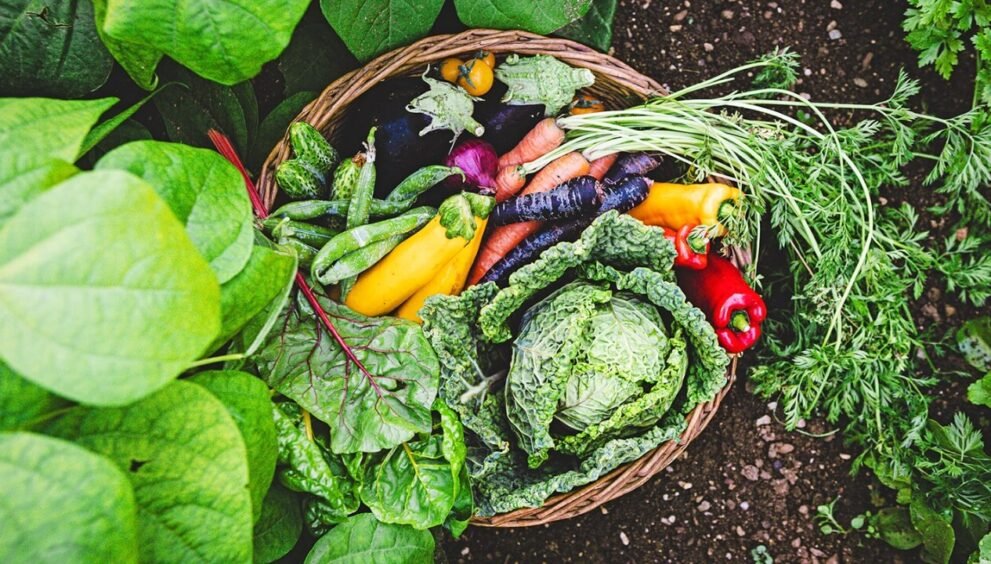Growing Health and Happiness: A Guide to Veg Plants for American Gardeners

For American gardeners, growing veg plants offers more than just a means to a fresh meal; it’s a joyful journey that connects people with nature, health, and sustainability. Whether you have a sprawling backyard or a modest balcony, cultivating vegetable plants can transform any space into a thriving, green sanctuary filled with vibrant colors and nourishing foods. This hands-on experience, enriched by planting, nurturing, and harvesting, not only provides fresh produce but also fosters personal well-being and environmental responsibility. In this blog, we will explore the art and science of growing veg plants, offering insights and inspiration for gardeners at all levels.
Understanding the Fundamentals of Veg Plants
Vegetable plants vary widely—from leafy greens like kale and lettuce to root vegetables such as carrots and beets, and fruiting varieties like tomatoes and peppers. Each plant has specific needs in terms of soil quality, sunlight, watering, and temperature. Preparing the soil with the right nutrients and ensuring adequate drainage are essential first steps. American climates offer diverse conditions across regions, making it crucial to select veg plants that are well-suited to local weather patterns. By understanding these basics, gardeners can optimize plant health, yield, and taste.
In addition to climatic suitability, integrating companion planting techniques—where certain plants support each other through pest control or nutrient sharing—can be highly beneficial. For example, basil is known to enhance the growth of tomatoes while deterring pests. This practice not only helps maintain a natural balance in the garden ecosystem but also reduces the need for chemical interventions, aligning with sustainable gardening principles supported by scientific research from horticulture experts.
Choosing the Right Veg Plants for Your Garden
When selecting veg plants, consider your personal preferences, garden space, and the growing season. Popular choices for American gardeners include tomatoes, cucumbers, carrots, and beans due to their versatility and relatively easy cultivation. Starting with seedlings or seeds depends on your level of experience and the time of year. Seedlings offer a jumpstart for beginners, while seeds provide a more rewarding experience for those who enjoy witnessing the complete growth cycle.
Experts emphasize crop rotation and seasonal planting to maintain soil fertility and reduce disease risk. Additionally, raising veg plants in containers or raised beds is an excellent option for urban gardeners with limited space. This method promotes better control of soil conditions and can prolong growing seasons with the use of covers or greenhouses.
Expert Insight on Veg Plant Cultivation
Gardening expert and author Ron Finley famously said, “Growing your own food is like printing your own money.” This statement underscores how cultivating veg plants not only contributes to financial savings but also empowers individuals with greater food security and healthier eating habits. Finley’s advocacy highlights the broader societal benefits of urban gardening, where communities can reclaim unused spaces to grow organic vegetables, fostering a deeper connection to food sources and encouraging sustainable urban living.
His approach is backed by numerous studies from agricultural scientists who confirm that home-grown vegetables often contain higher nutrient levels compared to store-bought varieties, which may lose nutrients during transportation and storage. This nutrient density directly supports public health goals by encouraging the consumption of fresh and wholesome produce.
Nurturing and Caring for Your Veg Plants
Successful cultivation involves more than just planting; it requires regular care, including watering, pruning, and pest management. Watering should be consistent but not excessive, ideally done in the morning to reduce evaporation and fungal risks. Mulching around veg plants conserves moisture, controls weeds, and improves soil quality, all of which contribute to robust plant growth.
Integrated pest management techniques advocate for natural remedies and preventive measures rather than harsh pesticides. Gardeners can attract beneficial insects like ladybugs and bees, which protect plants and aid in pollination. Organic fertilizers and compost enrich the soil, promoting sustainable growth cycles that mirror natural ecosystems, as supported by contemporary agricultural research.
The Health, Environmental, and Emotional Benefits
Growing and consuming veg plants bring multiple benefits beyond the garden. Fresh vegetables offer superior taste and nutritional value, supporting a balanced diet rich in vitamins, minerals, and antioxidants. Environmentally, local cultivation reduces carbon footprints by limiting the need for transport and packaging.
Moreover, gardening is known to improve mental health by reducing stress and promoting physical activity. The act of caring for plants instills a sense of purpose and accomplishment, fostering emotional resilience. These psychosocial benefits are increasingly recognized in health studies, positioning gardening as a holistic wellness practice.
Conclusion: Cultivating a Greener, Healthier Future with Veg Plants
Incorporating veg plants into everyday life invites American gardeners to embrace a rewarding blend of tradition, science, and sustainability. From selecting the right plants suited to diverse climates to nurturing them with eco-friendly practices, the journey leads to abundant harvests and a deeper connection to nature. As Ron Finley’s words inspire, growing one’s own food is a powerful form of empowerment and sustainability. Ultimately, planting and tending veg plants offer not only nourishment for the body but also joy for the soul—a meaningful investment in health and happiness for years to come.
Embracing veg plants represents a timeless gardening endeavor that nourishes American households, environments, and communities. With knowledge, patience, and care, anyone can cultivate a flourishing vegetable garden that transforms spaces and lives. Whether growing in a backyard or balcony, veg plants remain a source of continual discovery, satisfaction, and natural beauty.








































































































































































































































































































































































































































































































